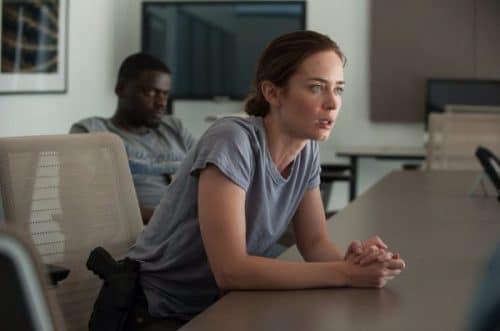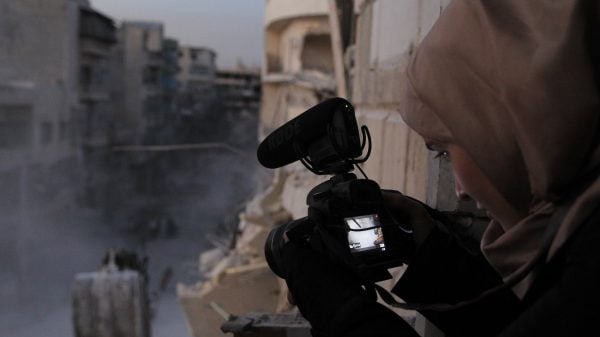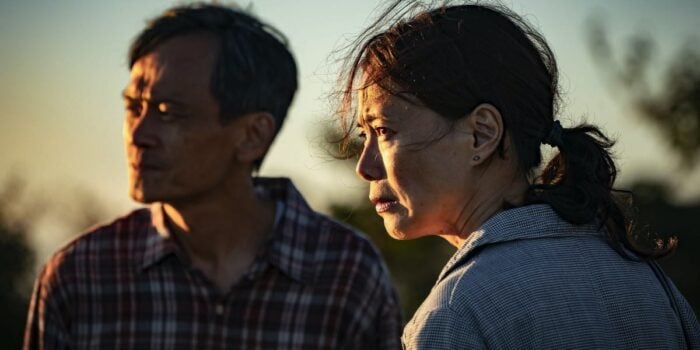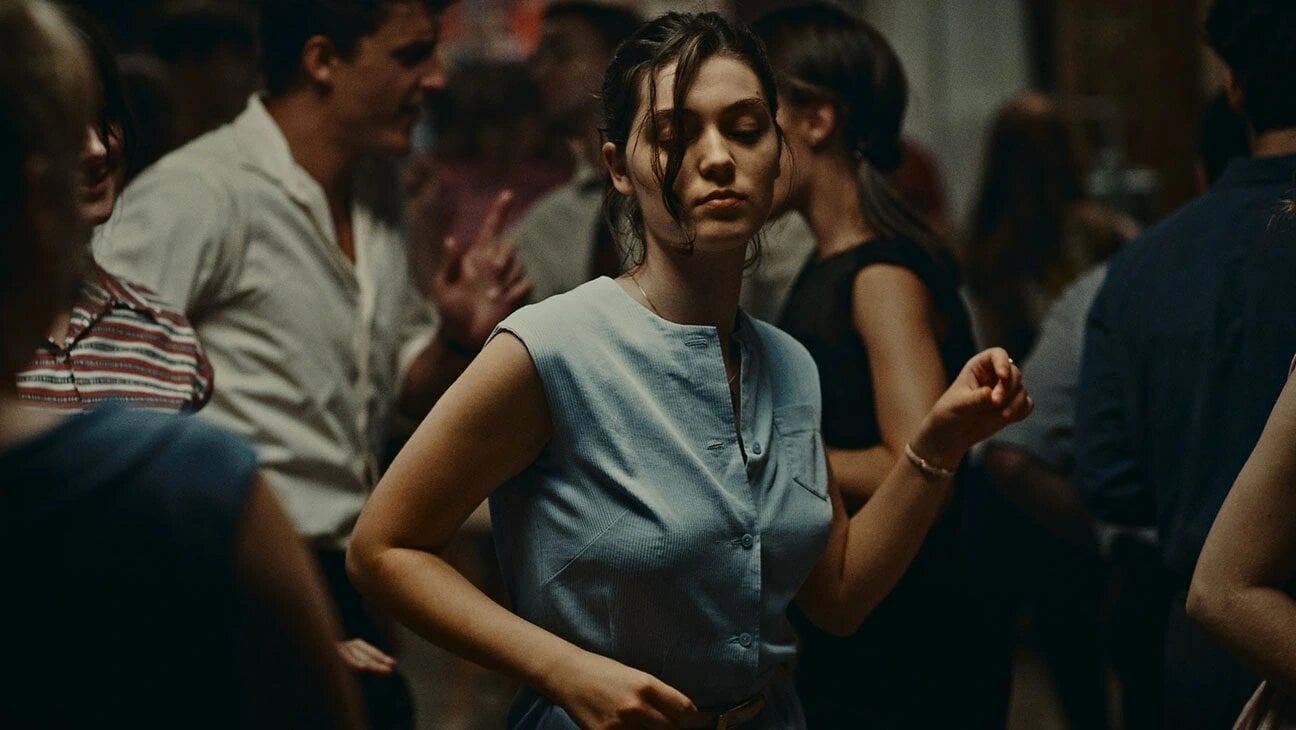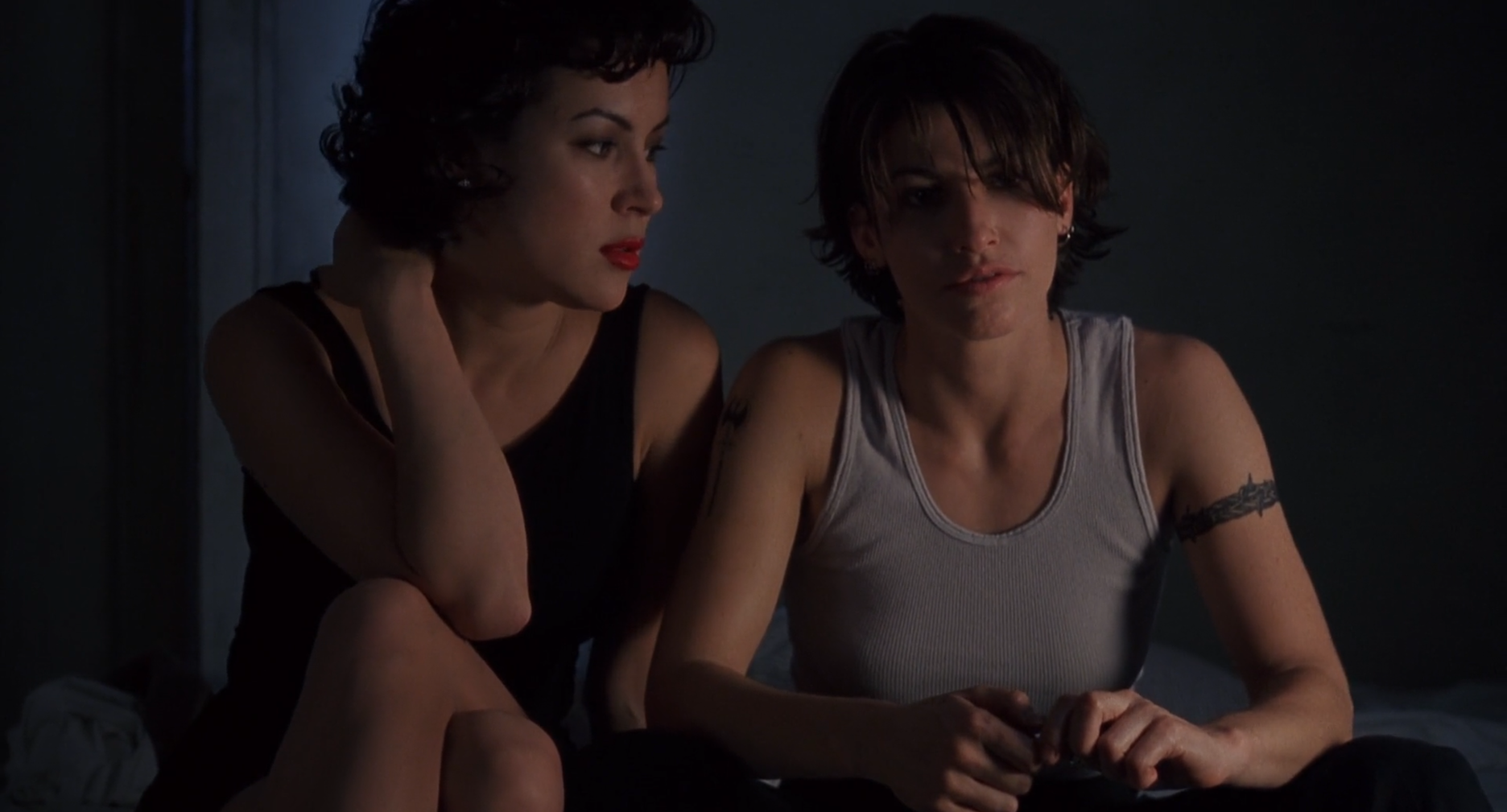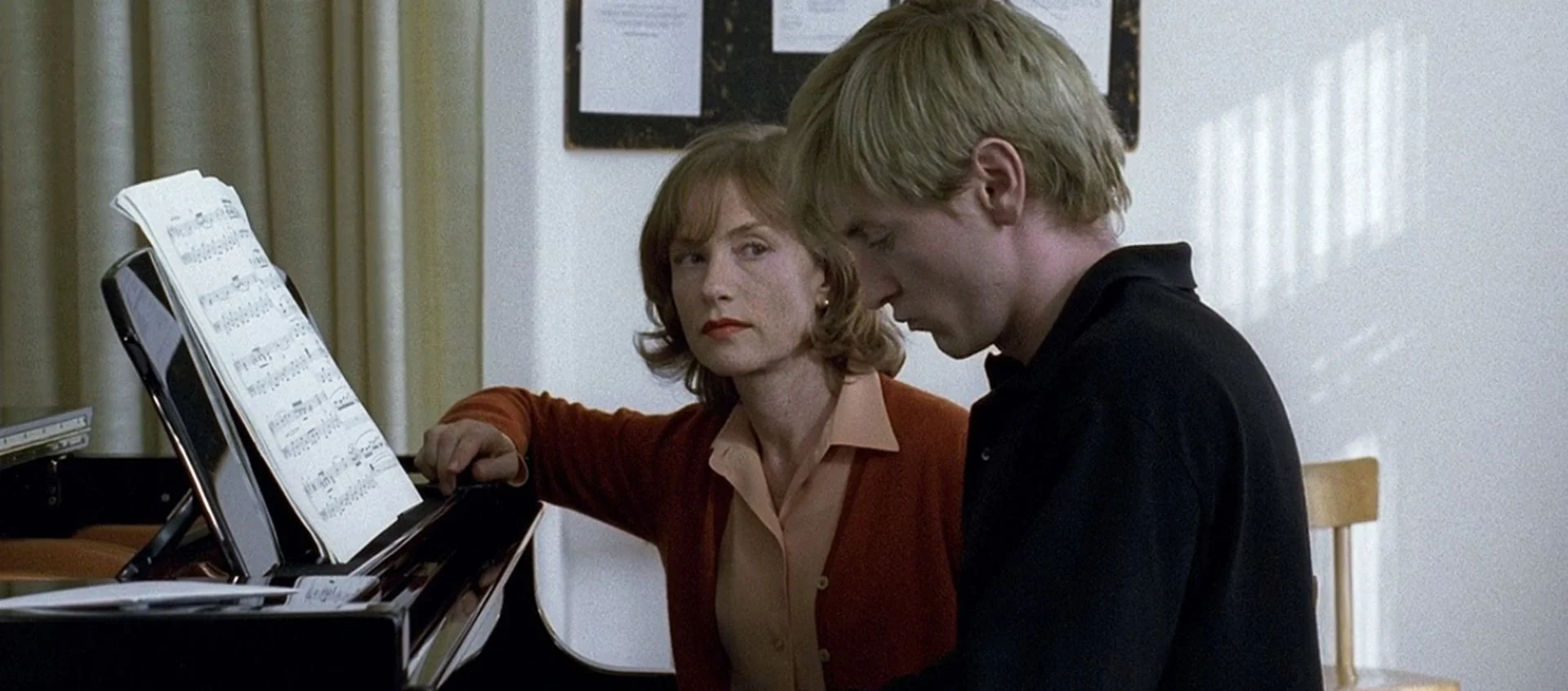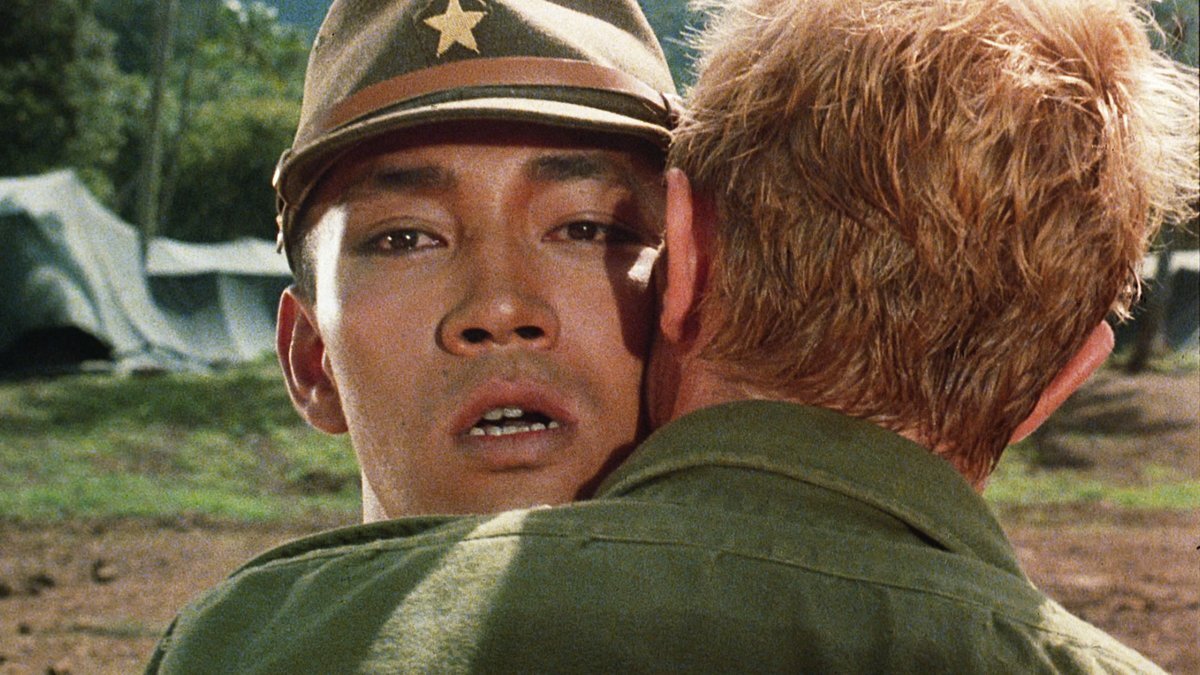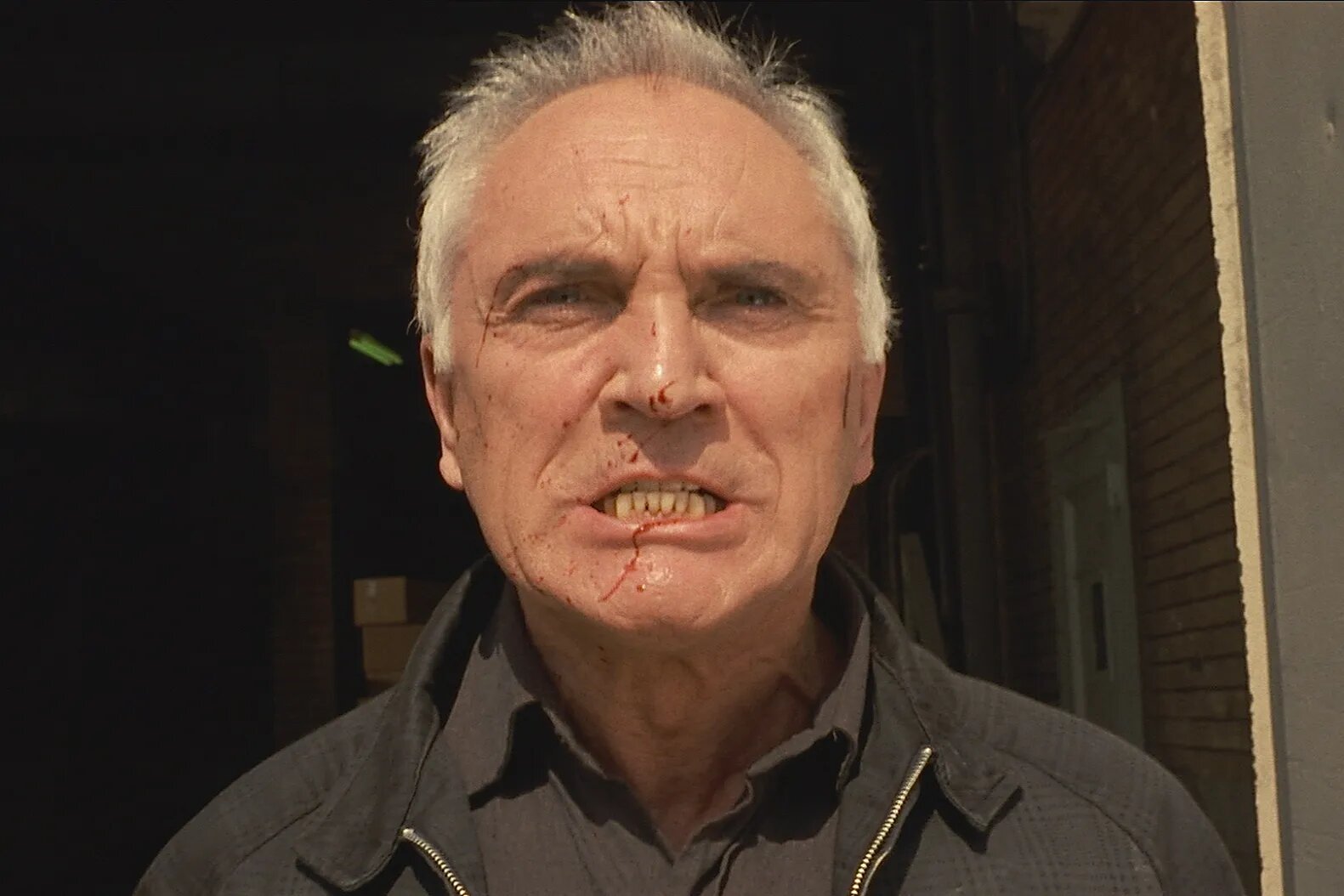
70 Best Anxiety-Inducing Movies
April 8, 2025
Share:
It seems counterintuitive, but there’s something cathartic about watching movies that keep you on the edge of your seat. Anxiety builds up as you follow characters do one infuriating thing after another—and when the credits finally roll, you find yourself gasping in relief like a tight valve of pressure inside you was released.
To that end, we’ve compiled the best anxiety-inducing movies you can watch right now. Whether you’re looking for a challenging slow burn like Mass, an intense drama like Whiplash, an intricate heist like Bad Genius, or an erotic thriller like Thirst, get ready to see the whites on your knuckles as you go through our list of films below.
Read also:
41. Sicario (2015)
Genres
Director
Actors
Moods
This is the type of famous movie that doesn’t feel like one. So if you haven’t yet seen it, avoid watching the trailer. Kate (Emily Blunt) is an FBI agent who is enlisted to aid in the war on drugs at the Mexican border. She is introduced to Alejandro (Benicio del Toro), a quiet and secretive agent working on the Mexican side. The reason you shouldn’t watch the trailer is that Sicario is much more than just another crime action movie, which its marketing will lead you to believe. It’s gorgeously made, with scenes that will catch your breath starting from the color composition to the amazing performances by Blunt and Del Toro. It’s intense, intelligent and very realistic in its approach to action sequences. Directed by Denis Villeneuve (Prisoners, Incendies, etc.)
42. Shéhérazade (2018)
Genres
Director
Actors
Moods
A gritty and realistic thriller set in France’s notorious capital city of crime – Marseille.
Zachary is released from Juvenile prison to learn that his mother has abandoned him. He finds kinship in an underage sex worker by the name of Shéhérazade.
This seems like the set-up for a tough watch, but Shéhérazade plays like a romance when it’s slow, and a crime thriller when it’s fast (it’s mostly fast). Everything about the story and two leads’ relationship rings true. Added to the fact that it has no interest in emotionally manipulating you, the movie is more gripping and thought-provoking than sad.
A great story, fantastic acting from the cast of first-timers, and outstanding direction give the feeling that Shéhérazade is bound to become a modern classic. If you liked City of God, you will love this.
43. Long Time Running (2017)
Genres
Director
Actors
Moods
The Tragically Hip was a deeply beloved band from Ontario that peaked in the 90s with hits like Grace, Too or Nautical Disaster.
The Hip, as their fans refer to them, had just finished recording their latest album in 2015 when the lead singer was diagnosed with a fatal disease.
This movie is about them deciding to go on one last tour to say goodbye to their fans and country. Mostly, it’s about the singer, Gord Downie, and how his personality and love for the music shined through his illness.
Picture someone who is giving an immaculate performance despite being a few weeks away from death, and a packed stadium of people singing along in tears – this is this movie.
It’s truly an incredible story of human ambition, empathy, and the bond that music can create between an artist and a whole nation.
44. For Sama (2019)
Genres
Director
Actors
Moods
This story of a filmmaker who stayed in Aleppo, Syria during the war, got married then had a child called Sama, is a mix of difficult and inspiring.
There are stories of unsurmountable loss, as the filmmaker’s husband is one of the 30 remaining doctors in Aleppo (a city of almost 5 million), and she films many of the victims that come to his hospital. But while this is happening, there are also uplifting stories of resilience and rare but profound moments of laughter and joy.
We’re growing too sensitized to violence in Syria, and this movie, possibly the most intimate account of the war, can stir back a much-needed awareness of the injustices that take place.
When things get really bad in the documentary, it’s hard not to wonder where the humanity is in all of this. You quickly realize that it’s right there, behind the camera, in Sama and her mother’s will to live.
45. A Sun (2019)
Genres
Director
Actors
Moods
In The Sun, a family of four is dealt with tragedy after tragedy, beginning with the younger sun A-ho’s sudden incarceration. The mother is sympathetic but the father all but shuns him as he chooses to throw all his affection to A-hao, the older brother, and his med school pursuits instead. Themes of crime, punishment, family, and redemption are then explored in gorgeous frames and mesmerizing colors with director Chung Mong-hong doubling as the film’s cinematographer.
Despite itself, The Sun never falls into cliche melodrama territory. Its heavy themes are undercut by naturalistic acting and poetic shots, resulting in a deeply emotional but balanced film. Rich in meaning and beauty, The Sun will surely stay with you long after your first watch.
46. Happening (2021)
Genres
Director
Actors
Moods
It’s heartbreaking to realize that Happening, a film set in 1960s France tracking a young woman’s journey to dangerously and desperately terminating her pregnancy, is still very much relevant and relatable to this day. Around the world, abortion is still inaccessible, if not completely illegal, and women still struggle to lay full claim to their bodies. A lot of girls grow up with pregnancy statistics meant to instill fear, but Happening brings all that to brilliant life in intimate and unrestrained detail. The fears and wants of our protagonist Anne (played precisely by Anamaria Vartolomei) are palpable throughout. Nothing is held back in this film, and if you find yourself sick in parts, then it has achieved its goal of realistically conveying what it’s like to stay alive in a society that fails to recognize your needs.
47. Bound (1996)
Genres
Director
Actors
Moods
Three years before the Wachowskis released The Matrix, their debut, Bound, was already one of the most visually stunning crime thrillers of the 1990s. If you look at the film as a straightforward genre piece, it’s as thrilling as the best of the genre: vulnerable heroines, suspenseful sequences taking place mostly in one enclosed location, and a plot driven by mind games and careful manipulation. Every scene is marked by one breathtaking image after another, from the atmospheric use of lighting and color to intelligently placed cuts linking the two protagonists together no matter how much they’ve been kept apart.
But Bound only takes on more meaning when you look at it through the queer and trans perspective that the Wachowskis undoubtedly placed over the film years and years before their own coming out. By focusing on how Violet and Corky (a captivating Jennifer Tilly, and a sensual Gina Gershon, respectively) use their femininity and their gender as tools to break free from these patriarchal gangster narratives, Bound becomes a timeless expression of queer yearning and freedom.
48. The Piano Teacher (2001)
Genres
Director
Actors
Moods
Based on the Austrian novel, The Piano Teacher is as brilliant and as disturbed as its protagonist. The film follows Erika Kohut (Isabelle Huppert), the repressed masochist in question, and the trainwreck of a relationship that she develops with her student Walter Klemmer (Benoît Magimel). Their dynamic is undeniably toxic. Austrian auteur Michael Haneke frames each scene with clinical detachment, but it is absolutely brutal how the two characters try to assert control over each other, engage in sadomasochism, and repeatedly violate each other’s boundaries. Huppert’s heartrending performance fully commits to the merciless treatment Erika receives. But more tragic is the way Erika’s unusual relationship could’ve freed her, could’ve helped her process her abuse, and instead, reinforces her repression. It’s scary to make yourself vulnerable by admitting your desires, only for them to be used against you.
49. Merry Christmas, Mr. Lawrence (1983)
Genres
Director
Actors
Moods
The tragic irony of war — that, if battling soldiers had been born in any other time or place, they may well have been friends with each other — takes center stage in this brilliant drama set in WWII-era Java. It’s a theme best encapsulated by Captain Yonoi (Ryuichi Sakamoto in his film debut), the bushido code-following commandant of a Japanese POW camp: “How wonderful it would have been if we could have invited all of you to a gathering under our cherry trees,” he muses to the titular British Lieutenant Lawrence (Tom Conti), one of his prisoners.
Lawrence is the camp’s mediator, and not just because he’s fluent in Japanese; in the culture clash microcosm that is the camp, he is uniquely understanding of his captors’ way of life. That earns him special privileges of sorts from the camp’s often brutal enforcer (Takeshi Kitano), but this pales in comparison to the instant partiality with which the charismatic Major Jack Celliers (David Bowie) enjoys, courtesy of a smitten yet deeply repressed and tormented Yonoi. This psychosexual undercurrent bubbles furiously throughout Merry Christmas, Mr. Lawrence, deepening its (already poignant) lamentations about war’s humanity-stripping effect and the self-imposed prisons that are honor and shame.
50. The Limey (1999)
Genres
Director
Actors
Moods
The bare bones of The Limey’s story — vengeful Cockney ex-con Wilson (Terence Stamp) flies to LA to investigate the suspicious death of his daughter Jenny — are gripping enough, but what Steven Soderbergh does with them elevates this neo-noir thriller into something utterly singular and stacked with layers upon layers of meaning. An icon of London’s Swinging ‘60s scene, Stamp is pitted against laidback symbol of ‘60s American counterculture Peter Fonda (as Jenny’s sleazy older boyfriend), giving their face-off grander cultural stakes. The extra-textual significance of the casting is deepened by Soderbergh’s ingenious references to the actors’ heyday: in flashbacks to Wilson’s happier past, for example, we’re shown the actual Stamp in his younger years (courtesy of scenes borrowed from 1967’s Poor Cow).
The Limey is also a brilliant showcase for editor Sarah Flack’s technical inventiveness: though the narrative is largely linear, the film cuts to and from scenes and sounds at unexpected points, giving the film an almost David Lynch-like sense of eerie fragmentation. Conjuring up a nightmare LA atmosphere isn’t all the editing does, either, as the film’s puzzle pieces are expertly reassembled to reveal an emotional gut-punch of an ending. In short, this high point in Soderbergh’s filmography is a must-see for any fan of cinema.
Comments
Add a comment
Ready to cut the cord?
Here are the 12 cheapest Live TV streaming services for cord-cutting.
More lists
Lists on how to save money by cutting the cord.
Curated by humans, not algorithms.
© 2025 A Good Movie to Watch. Altona Studio, LLC, all rights reserved.
